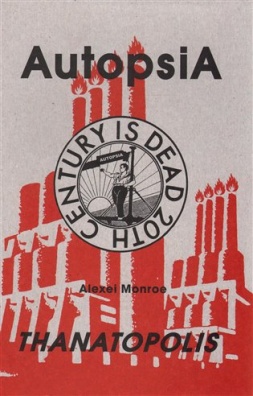Zařazeno v kategoriích: UMĚNÍ
Autopsia - Thanatopolis
Monroe Alexei
ISBN
9788086450919
EAN
9788086450919
In short, Autopsia is a structurally dispersed cult of impersonality (and of mystery). While it re-and de-animates the works of great composers and spectral identities, Autopsia provides only a void in place of the standard art/music historical figure of the great genius. Although under the influence of postmodernism and critical theory we have allegedly moved away from hagiographic histories, the influence of the personalityobsessed tabloid zeitgeist in which individual creators are expected to provide as much personal and biographical detail as possible has prevented this shift. At the level of mass culture the cult of personality is entrenched as never before. This is useful not only as a marketing tool, but also a correlate of the self-surveillance, self-incrimination society within which we exist. Through its strict anonymity and facelessness, Autopsia stands apart from this zeitgeist, against the compulsion to unmask, to fetishize and to identify. Perhaps it can even be said that Autopsia‘s emphasis on anonymity and depersonalisation, successfully defended for over 35 years, represents an ethically valuable reversal of Warhol‘s statement that everyone will be famous for 15 minutes. Autopsia suggests that in the future everyone might aspire to be anonymous for 15 minutes, even if in practice to achieve this for 15 seconds may seem difficult, and to extend and defend this anonymity over decades seems utopian. (.) Thanatopolis is the first extended work in English on a complex and mystifying body of work, dating back to 1979. Now based in Prague, it is an obscure part of industrial culture, which has been the subject of increasing interest over the last decade. AutopsiA is a highly cryptic and esoteric project so far ignored in the histories of this period. It uses an extremely diverse range of musical, philosophical, theological, poetic, literary, ideological and artistic sources, from biblical quotations to dubstep. The central theme this shadowy and shifting identity explores is death. Working in music, graphics, installations and film, AutopsiA intensively examines death as a cultural force that is increasingly repressed. Thanatoplis examines the key processes behind AutopsiA’s work and how it has often come to act as an uncanny commentary on future events. Thanatopolis explores the implications of its work appearing in 21st Century London, teetering on the brink of massive historical change and the attempted technological abolition of death.
Ostatní s tímto titulem kupují:
-
Položka byla přidána do košíku.
















